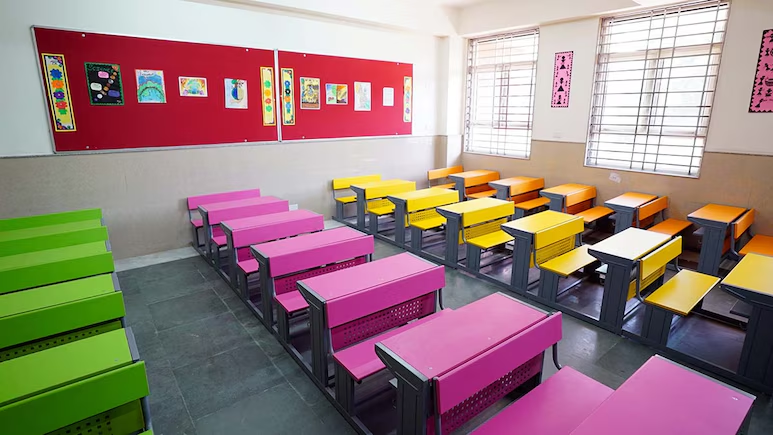
Creating a common learning platform that is flexible and accessible for all students, ensuring buildings and infrastructure facilities are accessible and disabled-friendly, developing bridge courses for students from disadvantaged educational backgrounds, are some of the accessibility guidelines for higher education institutions by the University Grants Commission.
ALSO READ | Fix Last Date For Admission To UG Courses: UGC To Higher Educational Institutions
The "Accessibility Guidelines and Standards for Higher Education Institutions and Universities" calls upon universities and colleges to develop effective accessible mechanisms for persons with disabilities covering every stage -- from admissions to completion of courses.
"They must ensure that all buildings and infrastructure facilities are accessible and disabled-friendly for all; develop bridge courses for those students who may come from disadvantaged educational backgrounds, and provide socio-emotional and academic support for all such students through suitable counselling and mentoring programs," the guidelines read.
"Higher education environments must facilitate that all students who experience disability have the right to access and participate in education, the ability to learn, and the right to exercise their voice, choice, and control in managing their own educational experiences," it added.
The guidelines, issued by the University Grants Commission (UGC), are in tune with the recommendations made in the new National Education Policy (NEP), 2020 that students from socio-economically disadvantaged groups, including persons with disabilities, need support to make an effective transition to higher education.
"It must be ensured to remove any barrier that stops, impedes, prevents or causes difficulty for an individual to fully participate in all aspects of higher education," said the 126-page report containing the guidelines.
The guidelines detail "specific needs" and "measures" for students affected by cerebral palsy, acid attack survivors, leprosy cured persons, dwarfism, muscular dystrophy, blindness and low vision, autism spectrum disorder, multiple sclerosis, parkinson's disease, sickle cell disease, thalassemia and haemophilia, among others.
ALSO READ | CUET UG 2022: 98 Per Cent Candidates Will Get Exam Centre In Their Chosen City, Says UGC Chairman
"Universities and Higher Education Institutions (HEIs) shall facilitate the provision of accessibility in administrative and other supports needed by diverse individuals with disabilities. The HEIs and universities shall ensure proper need assessment through their disability or equal opportunity Cell.
"Provision of support at all activities for effective transition of students into the system, including registration; academic support; facilitating stay and conveyance; fee submission; sponsorship; time table, schedules and academic almanac; grievance redressal; release or delivery of mark sheet, certification, diploma, transcript, migration ; counselling (pre-exam, post-exam, career-planning); fellowship and scholarships; and capacity building of staff," the guidelines added.
(Except for the headline, this story has not been edited by our staff and is published from a syndicated feed.)
